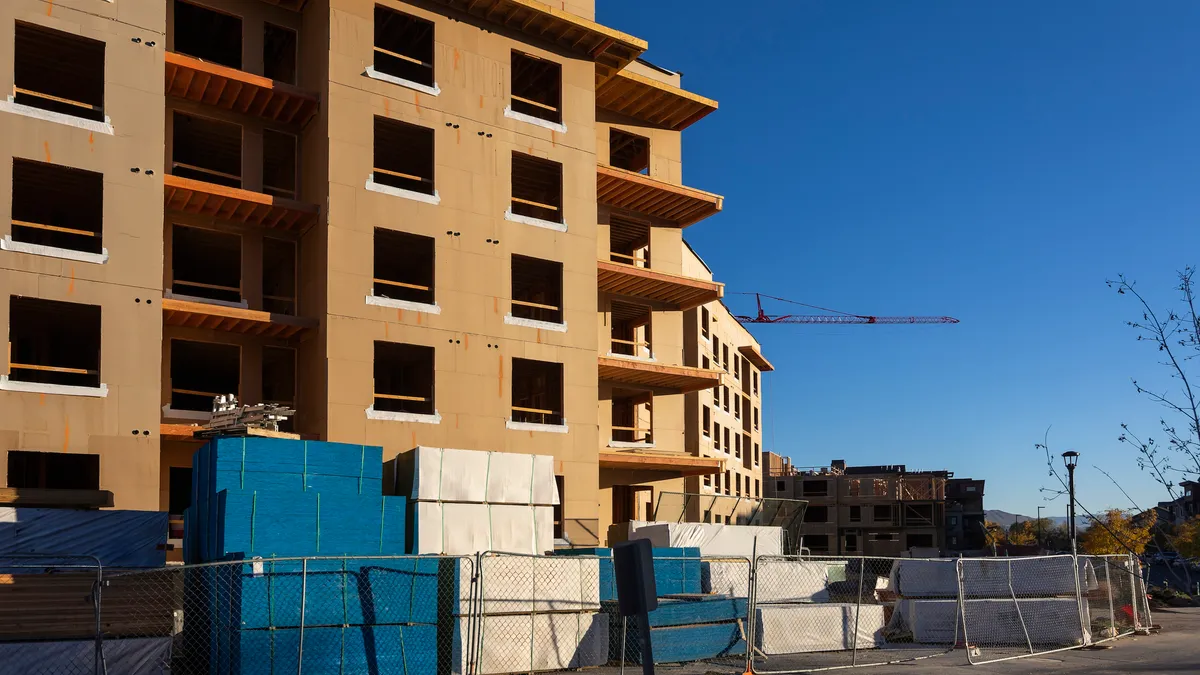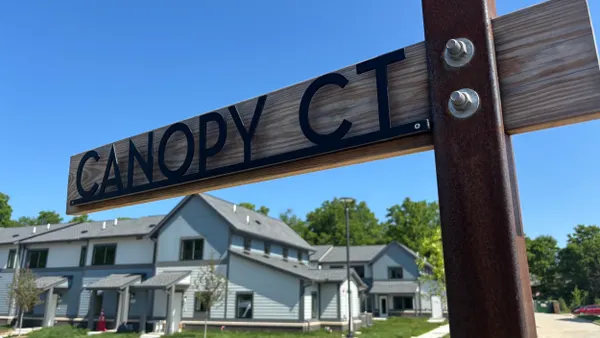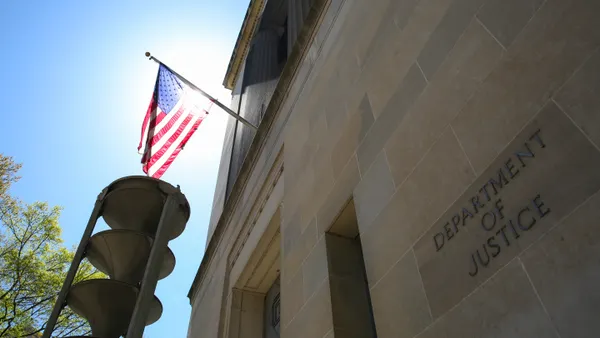Dive Brief:
- The Biden administration announced Feb. 29 that it is extending the Federal Financing Bank Risk-Sharing program, which allows state and local housing finance agencies to continue offering Federal Housing Administration-insured multifamily loans at reduced interest rates for projects that create and preserve affordable rental homes.
- The program, offered through the Treasury and Housing and Urban Development departments, previously was slated to stop accepting applications in September. The White House said it expects the extension to generate 38,000 rental units over the next 10 years.
- The extended risk-sharing program “will allow housing finance agencies to more easily lend to smaller developers who may not have access to private capital to help them build more housing supply affordable to low-to-moderate income households,” said Sarah Saadian, senior vice president of public policy and field organizing at the National Low Income Housing Coalition, in an email.
Dive Insight:
The U.S. has a shortage of around 7 million homes that are affordable and available to renters with extremely low incomes, the National Low Income Housing Coalition estimates.
Steps the Biden administration has taken to address the crisis include creating grants to help communities remove local policy barriers to housing production, launching new affordable housing financing opportunities and supporting commercial-to-residential building conversions.
The Federal Financing Bank Risk-Sharing program was created under the Obama administration in 2015 and expired during the Trump administration three years later.
Since the program’s 2021 relaunch, nearly $2 billion in FHA-insured loans under the program have helped build, preserve or support more than 12,000 affordable housing units, according to the White House.
In its February fact sheet, the administration also announced the creation of new resources that clarify existing HUD policies designed to protect renters. One set of documents clarifies which fees or charges are prohibited in housing that’s subsidized, public, or participating in the housing choice voucher or project-based voucher programs.
HUD also published a research paper outlining policies cities and states can adopt to reduce eviction filings. Those policies include:
- Requiring landlords to have “good cause” when evicting tenants, thus preventing arbitrary evictions.
- Providing tenants with universal access to legal services and increasing language, disability and other types of accessibility to courtrooms during eviction cases.
- Stabilizing households financially before they are evicted or they experience homelessness by providing them with emergency rental assistance.
While the measures may help tenants and affordable housing developers, the White House stated that action is needed from Congress to make “the investments necessary to ensure access to quality and affordable housing for all Americans.”
“Ultimately, the administration cannot solve the housing and homelessness crisis on its own,” Saadian said. “Congress must also act with similar urgency to invest in proven solutions at the scale needed to address the housing needs of those with the lowest incomes and those most marginalized.”










